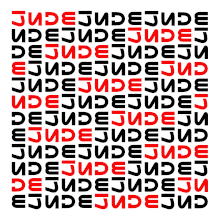Muhammad Zia-ul-Haq
President of Pakistan from 1978 to 1988
(Redirected from Muhammad Zia ul-Haq)
Muhammad Zia-ul-Haq (12 August 1924 – 17 August 1988) was 6th president of of Pakistan (1977–1988). He was born in Jalandhar of Indian Punjab and migrated to Pakistan after partition of sub-continent in 1947. He was well known for his work to contain Soviets in Afghanistan and Islamization of Pakistan and Afghanistan.


| This article about a political figure is a stub. You can help out with Wikiquote by expanding it! |
Quotes
edit- Pakistan which was created in the name of Islam will continue to survive only if it sticks to Islam. That is why I consider the introduction of [an] Islamic system as an essential prerequisite for the country.
- Praising the Pakistan National Alliance, the opposition movement against the Zulfikar Ali Bhutto's government during Operation Fair Play. Pakistan Times (Lahore), July 8, 1977. Quoted in Ispahani, Farahnaz (2017). Purifying the Land of the Pure: A History of Pakistan's Religious Minorities. Oxford University Press. p. 81. ISBN 978-0-19-062167-4. and in Burki, Shahid Javed (2018). Pakistan: Fifty Years Of Nationhood, Third Edition. Routledge. p. 66. ISBN 978-0-429-97813-5.
- What is a constitution? It is a booklet with twelve or ten pages. I can tear them away and say that tomorrow we shall live under a different system. Today, the people will follow wherever I lead. All the politicians including the once mighty Mr. Bhutto will follow me with tails wagging.
- Speaking to an Iranian Newspaper in September 1977, as quoted in Pakistan, a Dream Gone Sour (1997) by Roedad Khan.
- I genuinely feel that the survival of this country lies in democracy and democracy alone.
- As quoted in "Mohammad Zia ul-Haq : Unbending Commander for Era of Atom and Islam", The New York Times (18 August 1988).
- Cricket can be a bridge and a glue... Cricket for peace is my mission.
- Quoted in Helen Exley Cricket Quotations (1992)[1]
- Pakistan is like Israel, an ideological state. Take out Judaism from Israel and it will collapse like a house of cards. Take Islam out of Pakistan and make it a secular state; it would collapse. For the past four years we have been trying to bring Islamic values to this country.
- Zia-ul-Haq (1916-89), Chief Martial Law Administrator, Pakistan, 1981. As quoted from Tariq Ali - The Clash of Fundamentalisms_ Crusades, Jihads and Modernity-Verso (2002) page 156
About
edit- Zia's military dictatorship, once again fully backed by the United States, was the worst period in the country's history. Zia's men were dense, deaf and heartless. The new regime had decided to use Islam as its battering ram, and its bearded supporters, often incredibly stupid, were opportunist to the marrow of their bones. They combined religion with profanities of the vilest kind. Under Zia, despotism and lies mutilated a whole generation. Islamic punishments were introduced, public floggings and hangings instituted. The political culture of Pakistan was brutalised. It has still to recover. Washington and London watched from the sidelines as the country's elected leader was executed. Work on the nuclear programme continued, but Washington now chose to ignore the process because by now the pro Moscow Afghan left had seized power in Kabul.
- Tariq Ali, The Clash of Fundamentalisms, Crusades, Jihads and Modernity (2002)
- This is not a letter on Pakistan. If it were, I could have written a small book entitled "Glimpses of Pakistan's history". Time does not permit it. The nation is gripped in her worst crisis, standing in the middle of the road between survival and disintegration. Since the birth of Pakistan, crisis has followed crisis in rapid escalation. Millions of lives were sacrificed to create this country. Pakistan is said to be the dream of Mohammad Iqbal and the creation of Muhammad Ali Jinnah, the Quaid-e-Azam. Was anything wrong with the dream or with the one who made the dream come true? Opinions have differed and continue to differ. The next few years will most probably decide the issue, perhaps once and for all, and not without bloodshed. This process is not inevitable but the present policies of the ruling junta are driving this country towards a sad inevitability
- Zulfikar Ali Bhutto, as quoted in My Dearest Daughter : A letter from the Death Cell (2007), p. 37.
- Pakistanis were starting to suffocate. Darkness was enveloping the country, but also silence. The silence was hard to penetrate from the outside world. Fear kept people from speaking, the local press was muzzled, and news coverage of Pakistan was dominated not by the abuses of Zia’s regime but by laudatory reporting of his role in promoting and supporting the war against the Soviets next door in Afghanistan—America’s war. Decades later, when they thought back to the 1980s, the memory of that time would make Pakistanis shudder. Censorship was intensifying; journalists were being lashed, some were hanged. People started to disappear, picked up in the dead of night by the police, their relatives and friends left with no recourse under martial law. There were no more cafés, no more clubs, only deepening fear. Save for the occasional folkloric performance, most stage dancing was banned. Scores of performers left the country, taking with them parts of the country’s memory and heritage. Under the weight of censorship, the vibrant Pakistani movie industry was shrinking and cinemas were shutting down. No new ones were built for decades. Life retreated indoors.
- Kim Ghattas, Black Wave: Saudi Arabia, Iran, and the Forty-Year Rivalry That Unraveled Culture, Religion, and Collective Memory in the Middle East (2020)
External links
edit- ↑ Dictionary of Quotations, Chambers: Edinburgh, U.K, 2005, p. 937